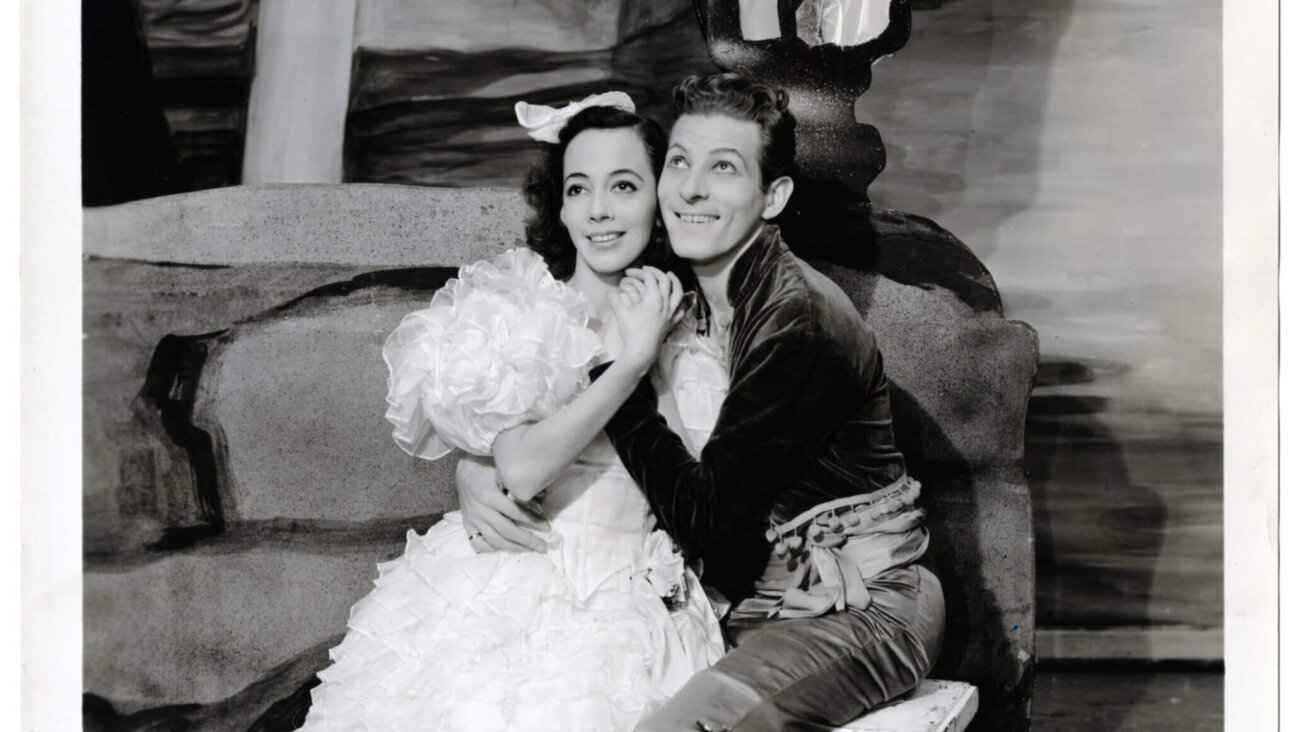A Toast to ‘Coasties’: Regarding an Ethnic Slur in Wisconsin

Quincy and Beef, aka Zooniversity, With ?Coastie? Friend: Giving and getting a bad rap.
Marjorie Gottlieb Wolfe, a writer and blogger on Yiddish and Yiddish-related subjects and the author of “Yiddish for Dog & Cat Lovers,” has sent out a group e-mail of which I am a recipient. It’s about the word “coastie,” a term for a fashion-conscious female Jewish undergraduate that has been circulating on and beyond the University of Wisconsin campus because of a hip-hop number by two ex-Wisconsin students who call themselves the Zooniversity. The song’s words, as recorded by Ms. Wolfe, go:

Quincy and Beef, aka Zooniversity, With ?Coastie? Friend: Giving and getting a bad rap.
“What’s a coastie?/ Black tights all day/ That’s a coastie/ Starbucks, big shades/ She a coastie/ Always blowin’ daddy’s money/ You are a coastie/ My east coast Jewish honey.
“What’s a coastie? White tee-v-neck/ That’s a coastie/ She always think that she the best/ She a coastie/ North Face with the Uggs/ You are a coastie /But ima still show some love.
“My Jewish American princess baby/ Walks with a swag and talks so crazy/ East coast accent/ East coast fashion/ Black Spandex wit an a—like Bascom! Smoking on a cig as she passin/ Blackberry messagin/ Multitaskin/ Take off the glasses/ Lemme see your face/ It’s a hot summer day/ Still rockin North Face/ Gotta Starbucks cup/ Yeah you my Star Bucky/ I know you live there but I could really get you lucky/ Talking on her celly like a girl ohhh gawwd/ Coach bag. Gucci shades that they daddy bought.”
And Ms. Wolfe, asking her readers to “see if you find the lyrics to be offensive,” wants to know how we feel about the word “coastie” in them.
She herself objects to it. So do a number of participants on the Forward’s Web site at the Bintel Brief and the Sisterhood. I don’t, although I must admit that I might feel differently if I were a Jewish student at the University of Wisconsin.
Before you make up your own minds about it, those of you who are as behind the times as I am might want a few glosses on the text. “Uggs” are expensive sheepskin boots. “North Face” is a trendy chain that sells camping equipment and sports clothes. “Spandex” is a synthetic material used in making tight-fitting pants and tops. “Bascom” is a round hill on the University of Wisconsin campus. And “Gucci” — but even I knew what a Gucci bag was before I started my research.
Why don’t I, a proud Jew, object to this stereotype of the “coastie” as a spoiled “American Jewish princess” who buys and wears only the best at her parents’ expense and struts around campus in it? I can think of at least four reasons.
First of all, such young women with expensive tastes and rich parents willing to pay the bill for them really do exist. I have even run across a few myself. You don’t have to be Jewish or from the East Coast to be one of them, of course, but at a place like the University of Wisconsin, whose out-of-state student body has a high percentage of East Coast Jews, it’s not unlikely that you would be. The “coastie” image is not a total libel.
Second, neither the word “coastie” (unlike the nastier-sounding “American Jewish princess”), nor the lyrics of the song itself, are particularly derogatory. In fact, the song displays very mixed emotions: While its “coastie” is teased for her designer clothes and snobbish chicness, she is also an object of admiration, to say nothing of sexual desire.
Third, the song, while hardly a work of genius, is more complicated than it might seem to be at first glance. Though sung by two white vocalists, its lyrics are (or pretend to be) in the same black English that Senator Harry Reid recently caused a stir by saying that Barack Obama didn’t speak — and what they express is a rather poignant sense of class difference, for they depict a young inner-city black acutely aware that the sexy Jewish college student who turns him on is in a social class that is barred to him. There is more wistfulness than anger in his voice — if only he could, he would love to compete for the “coastie’s” attentions himself. Whatever you wish to call this, it is certainly not antisemitism.
Last, I think it is time that not only American Jews, but Americans in general, stopped being so hyper-sensitive about ethnic allusions and ethnic jokes. The politically correct disapproval of them that has long been de rigueur in American society, perhaps once a necessary corrective when that society was far more racist and less tolerant of minorities than it is today, has become a form of intolerance itself. There are different ethnic groups, these do have their individual peculiarities, and if someone chooses to poke fun at the one that happens to be yours, especially if it’s fairly gentle fun like the Zooniversity’s, there’s no need to make a federal case of it. A mature society is one in which, within reasonable limits, it’s all right to laugh at others and be laughed at.
My problem with our coastie is her love of Starbucks. If she really thinks that’s the Gucci of coffees, I can only say Ugg.
Questions for Philologos can be sent to [email protected].

I hope you appreciated this article. Before you go, I’d like to ask you to please support the Forward’s award-winning journalism this Passover.
In this age of misinformation, our work is needed like never before. We report on the news that matters most to American Jews, driven by truth, not ideology.
At a time when newsrooms are closing or cutting back, the Forward has removed its paywall. That means for the first time in our 126-year history, Forward journalism is free to everyone, everywhere. With an ongoing war, rising antisemitism, and a flood of disinformation that may affect the upcoming election, we believe that free and open access to Jewish journalism is imperative.
Readers like you make it all possible. Right now, we’re in the middle of our Passover Pledge Drive and we need 500 people to step up and make a gift to sustain our trustworthy, independent journalism.
Make a gift of any size and become a Forward member today. You’ll support our mission to tell the American Jewish story fully and fairly.
— Rachel Fishman Feddersen, Publisher and CEO
Join our mission to tell the Jewish story fully and fairly.
Our Goal: 500 gifts during our Passover Pledge Drive!
























